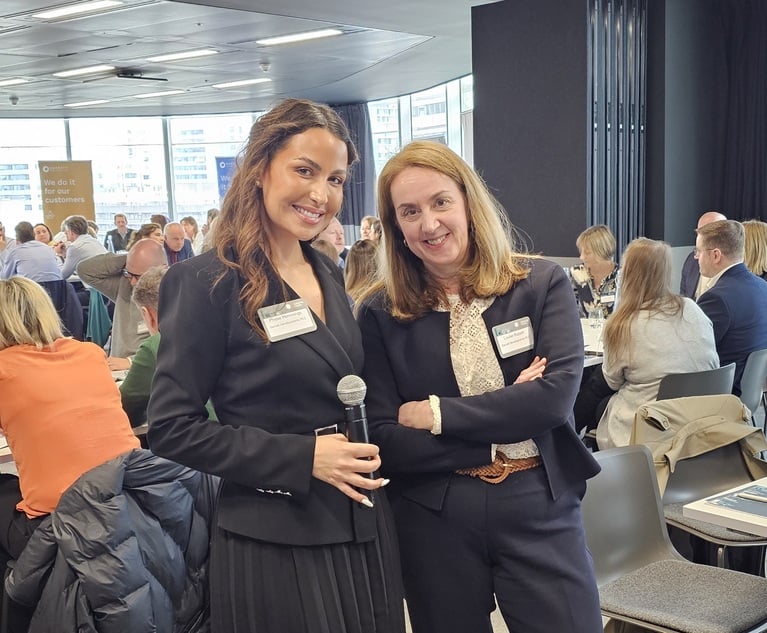Renaissance man - Ashar Qureshi on quitting Cleary for a senior banking role
"People are realising that a single event - even a major one - isn't enough to throw emerging markets off course anymore," remarks Ashar Qureshi, vice chairman of Renaissance Group, the Russia-based investment bank specialising in investments in the CIS and Africa. "Take Egypt, where we have investments and trade securities," he continues. "Despite the crisis, stocks in companies based there haven't shown the fragility many assumed they would." Qureshi's involvement with emerging markets work dates back to the early 1990s, when he was drafted onto the privatisation of Mexican telecoms company Telmex as a junior associate in Cleary Gottlieb Steen & Hamilton's New York office. "Emerging markets comes naturally to me. Maybe it's something to do with being brought up in Pakistan," he says. His specialism in this area gathered pace when, aged 27, he left the Big Apple to take up a role in Cleary's highly-regarded London capital markets team.
February 22, 2011 at 02:44 AM
6 minute read
Renaissance Group vice chairman Ashar Qureshi tells Alex Aldridge why he traded in a partnership at Cleary for a senior investment banking role
"People are realising that a single event – even a major one – isn't enough to throw emerging markets off course anymore," remarks Ashar Qureshi, vice chairman of Renaissance Group, the Russia-based investment bank specialising in investments in the CIS and Africa. "Take Egypt, where we have investments and trade securities," he continues. "Despite the crisis, stocks in companies based there haven't shown the fragility many assumed they would."
Qureshi's involvement with emerging markets work dates back to the early 1990s, when he was drafted onto the privatisation of Mexican telecoms company Telmex as a junior associate in Cleary Gottlieb Steen & Hamilton's New York office. "Emerging markets comes naturally to me. Maybe it's something to do with being brought up in Pakistan," he says. His specialism in this area gathered pace when, aged 27, he left the Big Apple to take up a role in Cleary's highly-regarded London capital markets team.
It was meant to be a "pit stop on the way back home" to Pakistan, but as Qureshi acted on a host of major public floats in the Middle East and Asia, he fell in love with London. "I came here as a double foreigner: a US-qualified Pakistani lawyer. And I was very quickly accepted into the London legal mainstream, which shows what an open-minded market London is. A lot of people don't appreciate that," he says.
Cleary was "a fantastic experience", but after 20 years in private practice the opportunity for a new challenge proved too enticing to turn down. Still, Qureshi needed several months to think through Renaissance's offer, made in late 2009. "My concern was that it wasn't simply another legal role, because I already had a very good legal role at Cleary. So we flirted for a while, I made sure there were substantive additional elements to the job, and then we hit a tipping point, like a third date where you decide to go for it," he says.
Around 40% of Qureshi's time is spent heading up Renaissance's asset management business. The rest is split between developing and implementing strategy as part of the eight-strong executive committee – which involves monthly trips to Moscow – and overseeing the company's 55 in-house lawyers. "It's a general dogsbody position," he says, adding that the high level of client contact in his new job makes it, in some ways, not radically different from being a partner in a law firm.
"But those client relationships are very different in an investment banking setting," he continues. "As a lawyer you protect interests, but what I'm doing now is promoting clients' interests. And as a result, I'd say we're viewed as more core to the proposition – something which no doubt is also related to the fact that we're providing access to the capital."
The downside of working for an investment bank is the bureaucracy. "That was the biggest surprise on joining, although it's necessary," says Qureshi. "Law firms, especially US law firms, are very management-light. But being far more exposed to cyclical trends, and boasting much higher fee earner to non-fee earner ratios, investment banks need to have a much deeper management structure."
With Renaissance currently in the market for a new general counsel following the departure of previous incumbent Steve Wootton, Qureshi's involvement with the legal side of the company is set to lessen. But for now he remains highly plugged in to the legal market, meeting up with his former colleagues regularly for coffee – but not lunch. "I'm a lunch at my desk kind of guy," he says, brushing some crumbs off his navy V-neck jumper.
A particular bugbear is fee structures, which he believes firms will have to revise if they are to remain competitive in the years ahead. "I don't think the current model of firms distinguishes anywhere near enough between value-add and non-value-add services. In the future, I think we'll see double-tier charging structures become the norm," he says.
Although oversight of the company's panel of external legal advisers is conducted by the four legal team heads who report to him, Qureshi "keeps an eye" on relationships with external law firms. Indeed, he led the company's panel review last autumn, which saw Allen & Overy win a first-time spot on the roster, and Herbert Smith, Hogan Lovells, Cleary, White & Case, Skadden Arps Slate Meagher & Flom and Latham & Watkins all reappointed.
Meanwhile, five further firms were added to provide advice in local jurisdictions, such as sub-Saharan Africa, or on specialist areas like litigation. "The aim was to make the panel more attuned to the needs of our business," Qureshi explains. "For example, we've looked to place a greater accent on using the best firms in a particular jurisdiction rather than the most convenient."
So will he ever make it back to Pakistan? "I'm not sure. I could see myself staying here," Qureshi responds. "But I could also see myself retiring to a farm in the middle of nowhere. My only fixed ambition is to win the EuroMillions lottery."
The client's view
Ashar Qureshi on London: "The stories of London's demise as a financial centre are greatly exaggerated. Yes, it's possible we'll put an artificial regulatory burden on this city that will not even address the issues it was originally meant to solve and in the end will prove a political sop. And yes, that could cause a temporary dislocation and perhaps a longer one. But London's penchant for creativity and innovation means that in the long run these problems can always be addressed."
Ashar Qureshi on outsourcing: "Law firms will have to outsource more. But I use that term in a loose sense. What I mean is that routinisable work will no longer be able to be charged at the same rate as non-routinisable work. Whether law firms do that by outsourcing to third party providers in India, commoditising precedents or by themselves creating a two-tier charging structure, it doesn't matter."
This content has been archived. It is available through our partners, LexisNexis® and Bloomberg Law.
To view this content, please continue to their sites.
Not a Lexis Subscriber?
Subscribe Now
Not a Bloomberg Law Subscriber?
Subscribe Now
NOT FOR REPRINT
© 2025 ALM Global, LLC, All Rights Reserved. Request academic re-use from www.copyright.com. All other uses, submit a request to [email protected]. For more information visit Asset & Logo Licensing.
You Might Like
View All
Broadcom Hires From Nuclear Giant to Appoint French Legal Head

GCs Say They are Getting 'Edged Out' of UK Boardrooms

'I Won’t Name the Firm, But...'—Barratt Redrow's Legal Head on External Counsel Red Flags
Trending Stories
- 1How a C-Section 'Scheduling Error' Led to a $17M Settlement
- 2Judge Louis C. Bechtle: An American Jurist Who Relied on Common Sense, Sound Judgment and Fairness
- 3Send Us Your New Partners for the NJ Law Journal's New Partners Yearbook
- 4Six Ways Thought Leadership Can Support Your Law Firm’s 2025 Strategic Plan
- 5'Unlawful' and 'Unconstitutional?:' Trump Lawyers Aim for Wholesale Dismissal of Manhattan Criminal Case
Who Got The Work
Michael G. Bongiorno, Andrew Scott Dulberg and Elizabeth E. Driscoll from Wilmer Cutler Pickering Hale and Dorr have stepped in to represent Symbotic Inc., an A.I.-enabled technology platform that focuses on increasing supply chain efficiency, and other defendants in a pending shareholder derivative lawsuit. The case, filed Oct. 2 in Massachusetts District Court by the Brown Law Firm on behalf of Stephen Austen, accuses certain officers and directors of misleading investors in regard to Symbotic's potential for margin growth by failing to disclose that the company was not equipped to timely deploy its systems or manage expenses through project delays. The case, assigned to U.S. District Judge Nathaniel M. Gorton, is 1:24-cv-12522, Austen v. Cohen et al.
Who Got The Work
Edmund Polubinski and Marie Killmond of Davis Polk & Wardwell have entered appearances for data platform software development company MongoDB and other defendants in a pending shareholder derivative lawsuit. The action, filed Oct. 7 in New York Southern District Court by the Brown Law Firm, accuses the company's directors and/or officers of falsely expressing confidence in the company’s restructuring of its sales incentive plan and downplaying the severity of decreases in its upfront commitments. The case is 1:24-cv-07594, Roy v. Ittycheria et al.
Who Got The Work
Amy O. Bruchs and Kurt F. Ellison of Michael Best & Friedrich have entered appearances for Epic Systems Corp. in a pending employment discrimination lawsuit. The suit was filed Sept. 7 in Wisconsin Western District Court by Levine Eisberner LLC and Siri & Glimstad on behalf of a project manager who claims that he was wrongfully terminated after applying for a religious exemption to the defendant's COVID-19 vaccine mandate. The case, assigned to U.S. Magistrate Judge Anita Marie Boor, is 3:24-cv-00630, Secker, Nathan v. Epic Systems Corporation.
Who Got The Work
David X. Sullivan, Thomas J. Finn and Gregory A. Hall from McCarter & English have entered appearances for Sunrun Installation Services in a pending civil rights lawsuit. The complaint was filed Sept. 4 in Connecticut District Court by attorney Robert M. Berke on behalf of former employee George Edward Steins, who was arrested and charged with employing an unregistered home improvement salesperson. The complaint alleges that had Sunrun informed the Connecticut Department of Consumer Protection that the plaintiff's employment had ended in 2017 and that he no longer held Sunrun's home improvement contractor license, he would not have been hit with charges, which were dismissed in May 2024. The case, assigned to U.S. District Judge Jeffrey A. Meyer, is 3:24-cv-01423, Steins v. Sunrun, Inc. et al.
Who Got The Work
Greenberg Traurig shareholder Joshua L. Raskin has entered an appearance for boohoo.com UK Ltd. in a pending patent infringement lawsuit. The suit, filed Sept. 3 in Texas Eastern District Court by Rozier Hardt McDonough on behalf of Alto Dynamics, asserts five patents related to an online shopping platform. The case, assigned to U.S. District Judge Rodney Gilstrap, is 2:24-cv-00719, Alto Dynamics, LLC v. boohoo.com UK Limited.
Featured Firms
Law Offices of Gary Martin Hays & Associates, P.C.
(470) 294-1674
Law Offices of Mark E. Salomone
(857) 444-6468
Smith & Hassler
(713) 739-1250







